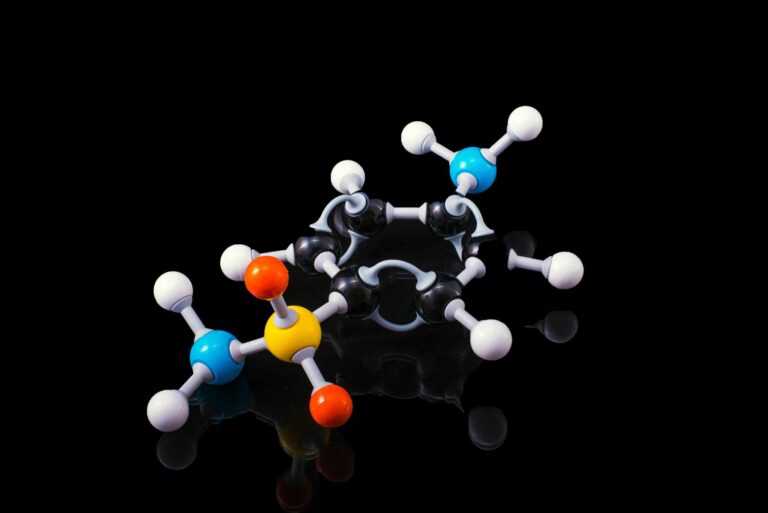In the realm of addiction recovery, the convergence of ancient practices with contemporary rehabilitation methodologies has emerged as a compelling avenue for holistic healing. The amalgamation of yoga, an age-old discipline emphasizing the harmonization of the mind and body, with modern rehab strategies offers a comprehensive approach to recovery for those struggling with substance abuse.
This article delves into the symbiosis between yoga and recovery, illuminating how the multifaceted dimensions of yoga can augment traditional treatment paradigms. By incorporating yoga into rehabilitation programs, individuals can nurture self-awareness, develop coping mechanisms, and foster inner resilience essential for sustained sobriety. Through the incorporation of ancient wisdom and mindfulness techniques, yoga serves as a transformative tool, empowering individuals to navigate a journey towards well-being and self-discovery.
The Roots of Yoga in Recovery
One key aspect of the incorporation of yoga in recovery programs is the deep-rooted history and philosophy of this ancient practice. Yoga philosophy forms the foundation of this healing practice, emphasizing the interconnectedness of the mind, body, and spirit. Through asanas, pranayama, and meditation, individuals in recovery can cultivate self-awareness, emotional regulation, and inner peace.
Yoga is not just a physical exercise; it is a spiritual connection that promotes self-discovery and personal growth. By delving into the holistic approach of yoga, individuals can address the root causes of their addiction, rather than just treating the symptoms. This comprehensive method allows for a more sustainable recovery journey, focusing on long-term well-being and transformation.
The integration of yoga philosophy into recovery programs offers a unique perspective on healing, encouraging individuals to explore their inner landscapes and develop a deeper understanding of themselves. By embracing the spiritual connection that yoga provides, individuals in recovery can find balance, harmony, and a sense of purpose on their path to sobriety.
Benefits of Yoga in Rehab
Exploring the benefits of incorporating yoga into rehabilitation programs reveals its potential to enhance holistic healing approaches for individuals seeking recovery from addiction. Yoga serves as a healing practice that goes beyond physical exercise, offering a comprehensive approach to address the mind, body, and spirit.
One of the key advantages of yoga in rehab is its ability to provide stress relief. Through breathing techniques and mindful movements, individuals can release tension and promote relaxation, which is crucial in managing the emotional challenges that often accompany the recovery process.
Additionally, yoga helps individuals cultivate emotional balance by fostering self-awareness and self-compassion, essential components for overcoming addictive behaviors. Moreover, the practice of yoga contributes to physical strength, enhancing the overall well-being of individuals in recovery by improving flexibility, balance, and muscle tone.
Integrating Yoga Into Treatment Plans
Incorporating yoga into treatment plans for addiction recovery offers a holistic approach that addresses the individual’s physical, mental, and emotional well-being. By integrating yoga techniques into rehab programs, individuals can cultivate a deeper mind-body connection, fostering self-awareness and emotional regulation. Yoga’s healing practices, such as mindfulness and controlled breathing, can help individuals cope with cravings and triggers, promoting resilience in recovery.
The therapeutic movements in yoga not only aid in physical strength and flexibility but also support mental well-being by reducing stress and anxiety. Integrating yoga into treatment plans encourages individuals to develop healthy coping mechanisms, enhance self-discipline, and promote overall well-being. Moreover, the meditative aspects of yoga can assist individuals in exploring their inner selves, processing past traumas, and fostering a sense of inner peace.
Mindfulness and Movement in Recovery
Integrating mindfulness and movement practices into addiction recovery treatment plans enhances holistic healing and self-awareness. Mindfulness techniques, such as meditation and deep breathing exercises, allow individuals to cultivate a non-judgmental awareness of their thoughts and emotions. This heightened self-awareness can help in recognizing triggers for substance abuse and developing healthier coping mechanisms.
Physical therapy plays a crucial role in recovery by promoting physical well-being and aiding in the restoration of strength and flexibility often compromised during active addiction.
Moreover, incorporating movement activities like yoga or tai chi not only improves physical health but also encourages mindfulness through focused movements and breathing patterns. These practices promote stress management by reducing cortisol levels and increasing endorphins, which can alleviate anxiety and depression commonly experienced during recovery.
Final Thoughts
The integration of yoga into addiction recovery programs offers a holistic approach to healing by combining ancient practices with modern rehabilitation methods. The benefits of yoga in rehab include promoting self-awareness, coping skills, and inner resilience necessary for long-term sobriety. By incorporating mindfulness and movement into treatment plans, individuals can break the cycle of addiction and embark on a transformative journey towards wellness and self-discovery.
At Altitude Recovery, we’re committed to lifting you from the depths of substance use challenges to the heights of recovery and resilience. Our expert team provides personalized, evidence-based treatment services designed to support your distinct path towards healing. Reach out to us for the understanding and compassionate care you deserve on your journey to wellness.
Frequently Asked Questions
How Can Yoga Help With the Emotional and Psychological Aspects of Addiction Recovery?
Yoga can aid in addiction recovery by fostering a strong mind-body connection, facilitating healing. Through yoga’s practices, individuals experience stress reduction, heightened self-awareness, and improved emotional regulation, leading to empowerment.
The coping skills developed through yoga practice enhance resilience, helping individuals navigate the emotional and psychological challenges of addiction recovery with greater ease and stability.
Are There Specific Types of Yoga Practices That Are More Beneficial for Individuals in Rehab?
In rehab settings, specific types of yoga practices can offer tailored benefits for individuals undergoing recovery. Yoga styles like restorative yoga, gentle yoga, and mindfulness-based practices have shown to be particularly beneficial for promoting mind-body healing and emotional regulation.
These therapeutic practices can help individuals in rehab connect with their emotions, reduce stress, improve self-awareness, and cultivate a sense of inner peace, supporting their overall recovery journey.
Can Yoga Be a Useful Tool for Preventing Relapse After Completing a Rehab Program?
Yoga can be a valuable tool for relapse prevention post-rehab. Through promoting a strong mind-body connection, yoga enhances emotional regulation, stress management, and overall well-being, crucial aspects of sustained recovery.
The benefits of a regular yoga practice extend to sobriety maintenance by fostering self-awareness and resilience. Integrating yoga into addiction recovery programs has shown promising results in supporting individuals in their journey towards a substance-free life.
Are There Any Potential Barriers or Challenges for Individuals in Rehab When Trying to Incorporate Yoga Into Their Treatment Plan?
When considering integrating yoga into a rehab program, potential barriers may arise. Individuals may face physical limitations hindering their ability to fully engage in yoga practices.
Time constraints could also pose challenges as they try to balance therapy sessions and daily responsibilities.
Additionally, a lack of experience with yoga may make it difficult for some participants to embrace it as a form of treatment.
Resistance to change could further impede the incorporation of yoga into their recovery journey.
How Can Individuals Continue to Practice Yoga and Mindfulness Techniques After Completing a Rehab Program?
Individuals can sustain their yoga and mindfulness practices post-rehab by establishing a daily routine that prioritizes self-care. Engaging in meditation for stress relief, seeking community support for accountability, and recognizing the benefits of yoga can aid in maintaining these practices.





